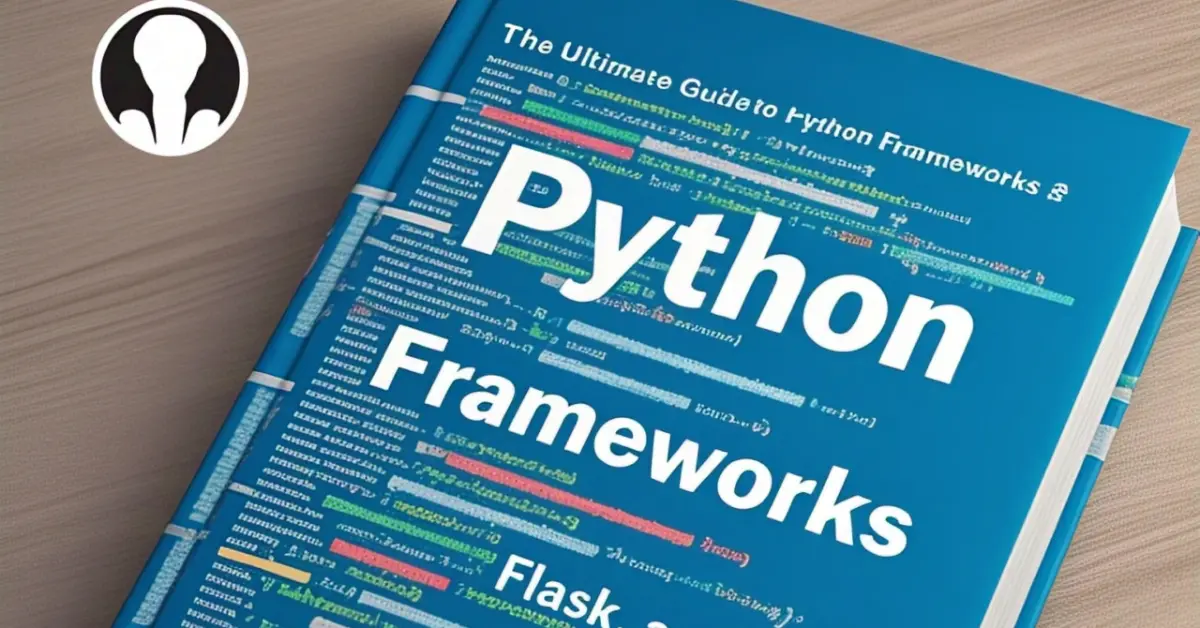Many software developers today are increasingly integrating artificial intelligence (AI) into their workflows, transforming the way you approach coding, debugging, and project management. AI-driven tools can streamline repetitive tasks, enhance efficiency, and improve overall software quality. By leveraging machine learning algorithms, you can gain valuable insights from vast datasets, enabling better decision-making during development. This blog post will explore how incorporating AI into your software development practices can not only boost productivity but also create innovative solutions in an ever-evolving tech landscape.
The Evolution of AI in Software Development
Historical Context
For many decades, artificial intelligence has captured the imagination of researchers and developers alike, particularly in software development. From the early days of rule-based systems to the advent of machine learning, AI has gradually evolved to become a powerful tool in enhancing software applications. Initially, developers relied on simple algorithms to automate repetitive tasks. As the demand for smarter applications grew, so did the complexity of the solutions you use, paving the way for more sophisticated AI methodologies.
Advancements in AI Technologies
Among the most significant advancements you will notice in AI technologies are the breakthroughs in natural language processing (NLP), machine learning, and deep learning. These technologies have transformed how software development teams approach problem-solving, enabling you to build systems that are not only reactive but also proactive in predicting user needs. With frameworks like TensorFlow and PyTorch, incorporating machine learning into your software has become accessible and efficient, leading to a new era of innovation and creativity.
Consequently, the integration of AI in software development has expedited the development lifecycle, reduced human error, and improved user experience. You can now leverage AI-driven tools for tasks such as code review, testing, and even generating code snippets, which allows you to focus on higher-level design and strategic planning. This shift not only streamlines your workflow but also enhances collaboration among team members by providing predictive analytics and insights, fundamentally altering how software is conceived and built.
AI-Driven Tools and Frameworks
Some of the most significant advancements in software development can be attributed to the integration of AI-driven tools and frameworks. These technologies empower developers like you to increase productivity, optimize workflows, and enhance collaboration within teams. By leveraging AI, you can access better insights into coding practices and improve the overall quality of your software projects. With the emergence of intelligent development environments, the barriers to creating robust applications are continually being lowered, allowing for faster iterations and innovative solutions.
These AI-driven tools extend across multiple areas of software development, including code generation, testing, and deployment. They help automate repetitive tasks, analyze code quality, and optimize resource usage. As you incorporate these advanced technologies into your development process, you will find that they serve not only as powerful assistants but also as valuable partners in your journey to create scalable and maintainable software solutions.
Code Generation and Suggestions
Generation of code has been significantly transformed by AI technologies, making it easier for you to write efficient and error-free code. Modern AI tools can analyze your coding patterns and automatically generate snippets or entire functions based on your requirements, helping you to focus on higher-level tasks. These code suggestions can also offer real-time feedback, allowing you to refine your approach before errors escalate. With integrated support for various programming languages and frameworks, you can expect an enhanced coding experience that accelerates development timelines.
As you use AI-driven code generation tools, you may discover that they significantly reduce the learning curve when tackling new frameworks or languages. By suggesting code snippets or providing examples, these tools facilitate your understanding and mastery of unfamiliar technologies. Moreover, the more you interact with these AI systems, the more accurate and tailored their suggestions become, ensuring that your coding style and needs are met effectively.
Continuous Integration and Deployment Automation
Below the surface of everyday software development lies the vital processes of continuous integration (CI) and continuous deployment (CD). By utilizing AI-driven automation tools, you can streamline these processes to make your workflow more efficient. Implementing CI/CD pipelines enhances your ability to integrate code changes more frequently and deploy new features seamlessly, thereby reducing the risk of errors that can occur during software releases. With AI monitoring and optimizing these processes, your team will be able to deliver high-quality software more rapidly and reliably.
Understanding how to leverage AI for continuous integration and deployment can profoundly affect the speed and quality of your software delivery. Enhanced predictive analytics can assist you in identifying potential integration issues before they arise, while advanced algorithms can optimize deployment strategies based on historical data. This means that you can achieve higher levels of efficiency, allowing you to focus on innovation and improvement rather than just maintaining the status quo. By embracing AI’s capabilities, you will elevate your development processes and ensure your software projects meet the demands of your users with agility and precision.
Enhancing Software Quality through AI
Assuming you are involved in software development, you likely understand that the quality of your software is paramount to its success. AI technologies have emerged as powerful allies in enhancing this quality by streamlining processes and reducing human error. By integrating AI into your software development workflows, you can achieve a higher level of precision and efficiency, ultimately leading to a more polished and dependable product. This not only improves user satisfaction but also fosters trust in your brand, setting you apart in a competitive market.
Automated Testing
Through the application of AI, automated testing has transformed traditional quality assurance methods. You can leverage AI-driven testing frameworks to perform regression, performance, and load testing with remarkable speed and accuracy. These advanced systems intelligently analyze your code and automatically generate test cases based on user behavior, ensuring that you cover a wide array of scenarios without the need for extensive manual intervention. This not only saves you valuable time but also enables you to release your software updates more frequently and confidently.
Bug Detection and Resolution
One of the most significant advantages of AI in software development is its ability to enhance bug detection and resolution strategies. You can employ AI algorithms capable of examining vast amounts of code to identify anomalies and potential vulnerabilities that might go unnoticed through manual reviews. By automating this process, your development team can focus on more intricate issues while having a reliable system that continuously monitors the software for defects. Consequently, this leads to quicker resolutions and improved overall software performance.
In fact, the integration of AI into bug detection and resolution not only expedites the identification of issues but also aids in predicting future problems before they occur. By analyzing historical bug data, AI can provide insights that inform your team about areas of code most prone to errors, allowing you to proactively address these concerns. This data-driven approach empowers you to make informed decisions about code improvements and resource allocation, ultimately leading to a richer user experience and more robust software solutions.
The Impact of AI on Developer Productivity
Despite the challenges that software developers face, the integration of AI technologies significantly enhances their productivity. By streamlining workflows and automating mundane tasks, AI allows you to focus on more complex and creative aspects of software development. This not only leads to faster project completion but also improves the quality of the code you produce, as you spend less time on time-consuming repetitive actions and more time innovating within your projects.
Reducing Time Spent on Repetitive Tasks
At the heart of AI’s impact on developer productivity is its ability to automate repetitive tasks. Tools powered by machine learning can automatically generate boilerplate code, conduct routine testing, or even assist in debugging, which means you can allocate more of your time to problem-solving and feature development. This effectively reduces the administrative burden often associated with software development, allowing you to meet deadlines more efficiently and allocate resources towards more strategic areas of your projects.
Enhancing Collaboration among Teams
Above all, AI enhances collaboration among teams by providing smart tools that improve communication and streamline project management. AI-based platforms can analyze team interactions and suggest optimal workflows, helping you and your colleagues to coordinate efforts more effectively. This empowers you with insights that encourage a cohesive team environment, ensuring that everyone is on the same page and can contribute effectively to the project goals.
Among the many benefits that AI brings to collaboration is the ability to break down silos that often hinder productivity in software development. AI tools can centralize communication by integrating various platforms, making it easier for you to track progress, share ideas, and provide feedback in real time. This not only fosters a more engaging work environment but can also lead to higher job satisfaction as you witness firsthand the positive impacts of effective teamwork on your projects.
Ethical Considerations in AI-Enabled Development
For software developers and organizations adopting AI technologies, understanding ethical considerations is paramount. As you integrate AI into your development processes, it’s necessary to recognize how these systems can impact not only technical outcomes but also social dynamics. Ethical AI usage goes beyond compliance with laws and regulations; it involves a commitment to fostering trust, accountability, and fairness in a rapidly evolving landscape where biases and inequities can manifest in various ways.
Bias in AI Algorithms
Across the development realm, there’s growing awareness of the potential for bias in AI algorithms. These biases often stem from skewed training data or unconsidered parameters during the machine learning process, which can inadvertently lead to unfair treatment of certain groups or individuals. As you explore these AI models, it is vital to scrutinize the datasets you use and implement checks to ensure that your outcomes do not reinforce harmful stereotypes or exacerbate existing inequalities.
Impact on Employment in Software Development
Around the world, the integration of AI into software development has raised questions about the future of employment in the field. As AI tools increase productivity, you may find that certain tasks become automated, leading to a shift in job requirements. While some positions may become obsolete, others will evolve, emphasizing the need for a workforce that is skilled in AI technologies and adaptable to change. Embracing lifelong learning will be necessary for you to stay relevant in this transforming industry.
At the same time, the shift towards AI-enhanced development brings opportunities for new roles and responsibilities. You should consider focusing on areas where human intuition, creativity, and emotional intelligence are irreplaceable. Roles centered around AI oversight, ethical implications of AI applications, and interplay between human development and machine learning are likely to gain traction. By adapting your skills to these evolving demands, you can position yourself advantageously in a changing job market that prioritizes collaboration between humans and AI.
Future Trends in AI and Software Development
Keep an eye on the horizon as the intersection of artificial intelligence and software development continues to evolve. In the next decade, you can expect significant advancements in AI capabilities that will enhance how software is created, maintained, and managed. Tools that leverage machine learning for predictive analytics are anticipated to become standard, allowing your development teams to gain predictive insights into project timelines and resource allocation. As AI’s understanding of natural language grows, you might find that writing, debugging, and optimizing code could be streamlined through sophisticated conversational AI interfaces. This will potentially reduce the learning curve for new developers while enabling seasoned professionals to focus on higher-level strategic areas of their projects.
Predictions for the Next Decade
An exciting prospect for the next decade is the shift toward more autonomous software development. You may see frameworks and platforms that harness AI to take over repetitive tasks traditionally done by developers, generating code snippets or even entire applications based on a brief set of requirements inputted by you. Additionally, advancements in AI could lead to the emergence of AI-driven testing and code review tools that learn from past outcomes, ultimately improving software quality while reducing time-to-market. Such innovations will redefine your understanding of the software development lifecycle, bringing a new level of efficiency and effectiveness to the process.
Integration of AI with Emerging Technologies
To fully embrace the future of software development, it’s important to consider how AI will integrate with emerging technologies such as blockchain, IoT, and quantum computing. The synergistic potential of these technologies can lead to more secure and reliable applications, enabling you to develop solutions that capitalize on the strengths of each. For instance, AI algorithms can help in managing the complexities of IoT devices by providing real-time data analytics and predictive insights, enhancing both performance and user experience. Moreover, coupling AI with blockchain technology can create robust systems that offer higher transparency and security in transactions, which you may find particularly beneficial for applications in finance or supply chain management.
At the core of this synergy lies the ability to transform raw data into actionable insights, fundamentally changing how you approach problem-solving within your development projects. You could leverage AI to analyze the vast amounts of data generated by IoT devices, while simultaneously using blockchain to ensure that this data is tamper-proof and trustworthy. As AI and other emerging technologies converge, the horizon of possibilities expands, allowing you to develop innovative solutions that were once only theoretical. By staying informed about these trends, you position yourself to take advantage of the benefits they offer, ensuring your software development practices remain contemporary and competitive.
Final Words
To wrap up, understanding the role of AI in modern software development can significantly enhance your approach to building applications and systems. As you incorporate AI-driven tools into your workflow, you unlock a variety of efficiencies that streamline processes like code generation, testing, and debugging. This not only allows you to reduce development time and costs but also empowers your team to focus on more complex and innovative tasks. You can leverage AI to gain insights from data, aiding in decision-making and forecasting trends that can shape your projects.
Moreover, embracing AI technologies positions you to stay competitive in an ever-evolving landscape. By adopting these advancements, you are not just improving your current software solutions, but also preparing yourself for future challenges and opportunities. As AI continues to grow and develop, being proactive in understanding its implications for software development will equip you with the tools necessary to lead in your field. It may also enhance your capacity for innovation, enabling you to create more intelligent, user-friendly applications that address real-world issues.



